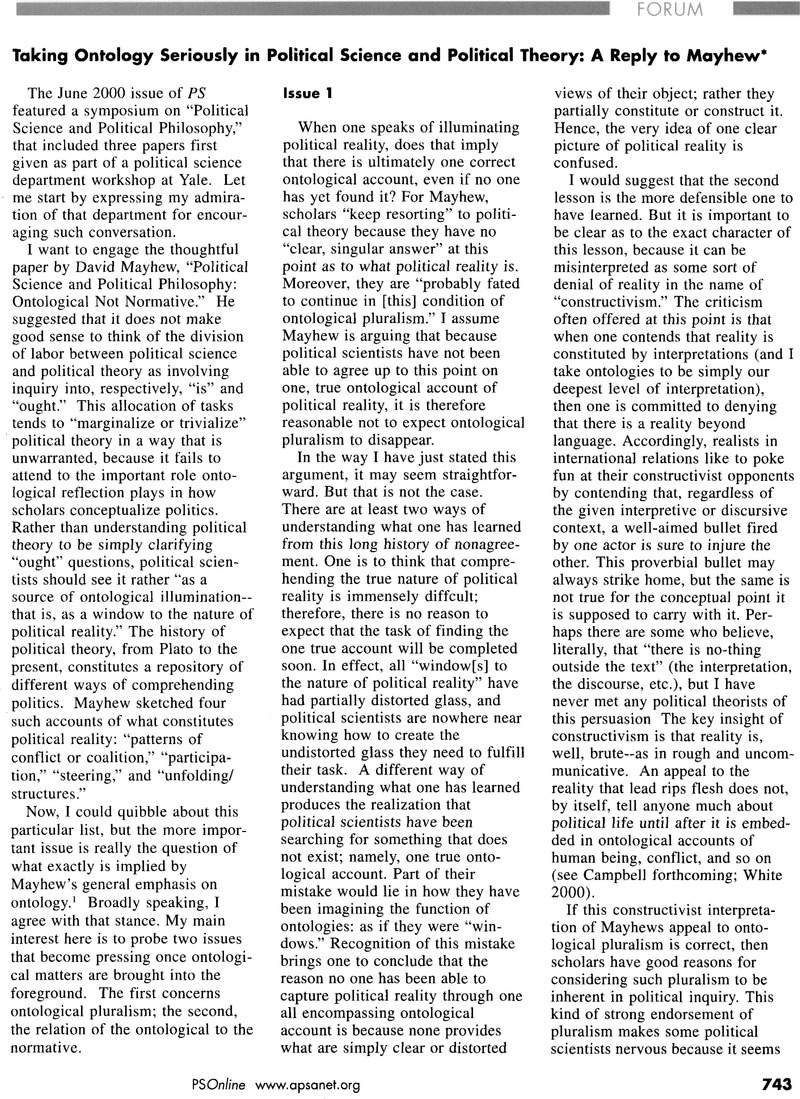No CrossRef data available.
Article contents
Taking Ontology Seriously in Political Science and Political Theory: A Reply to Mayhew
Published online by Cambridge University Press: 02 September 2013
Abstract
An abstract is not available for this content so a preview has been provided. As you have access to this content, a full PDF is available via the ‘Save PDF’ action button.

- Type
- Letter
- Information
- Copyright
- Copyright © The American Political Science Association 2000
References
Ball, Terence. 1987. “Is There Progress in Political Science?” In Idioms of Inquiry: Critique and Renewal in Political Science, ed. Ball, Terence. New York: State University of New York Press.Google Scholar
Campbell, David. Forthcoming. “International Engagements: The Politics of North American International Relations Theory.” Political Theory.Google Scholar
Dryzek, John. 1990. Discursive Democracy: Politics. Policy and Political Science. Cambridge: Cambridge University Press.CrossRefGoogle Scholar
Fay, Brian, and Moon, J. Donald. 1977. “What Would an Adequate Philosophy of Social Science Look Like?” Philosophy of the Social Sciences
7(3): 209–27.CrossRefGoogle Scholar
Moon, J. Donald. 1975. “The Logic of Political Inquiry: A Synthesis of Opposed Perspectives.” In Handbook of Political Science, vol. 1, ed. Greenstein, Fred and Polsby, Nelson. Reading, MA: Addison-Wesley.Google Scholar
Taylor, Charles. 1995. Philosophical Arguments. Cambridge, MA: Harvard University Press.Google Scholar
White, Stephen K.
2000. Sustaining Affirmation: The Strengths of Weak Ontology in Contemporary Political Theory. Princeton: Princeton University Press.Google Scholar


